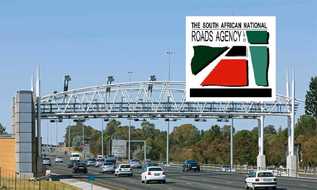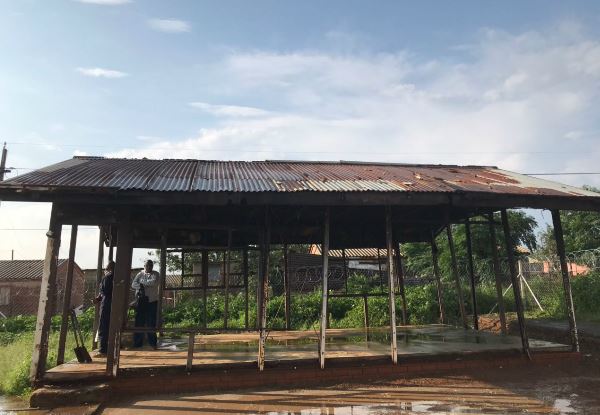|
Quantity Surveyors are aiming to play a crucial role in getting “frozen” infrastructure development projects back on track. “Municipal managers and classically trained accountants are currently expected to deliver complex projects,” says Larry Feinberg, Executive Director of the Association of South African Quantity Surveyors (ASAQS). “Not only is this expectation unfair on them without them having received the proper training; it’s also part of the reason why some large infrastructure development projects have been suspended or have ground to a halt.”
According to Feinberg the ASAQS has been in talks with senior government officials and other industry bodies to create solutions that can assist with training and professional support to those charged with delivering these projects. “Training on the use of standards documentation is but one of the areas where Professional Quantity Surveyors can be of assistance,” explains Feinberg. “Deploying Professional Quantity Surveyors to upper echelons in government is one of the mechanisms that can be used to good effect to educate officials on good governance in procurement, bidding and tendering processes, and the complex process of managing the construction process from a cost control point of view.” The “Send Me” call made by President Ramaphosa during his State of the Nation address earlier this year has resonated with many and sparked collaborative action across many economic sectors. Feinberg hopes that this call can be used as a basis for professionals in the built environment to bridge focus areas that traditionally operate in and create solutions that serve the best interest of the public and the fiscus. “Our interactions on several discussion platforms are focused on how to bridge the gap between what Thuma Mina means for the public sector and how our members can assist,” says Feinberg. The ASAQS has consistently promoted the role of a Quantity Surveyors as one that plays a significant part in curbing instances of fraud and wasteful expenditure. “The time for behaviours that – intentionally or unintentionally – resist collaboration is over,” says Feinberg. “It is now time for all of us to share knowledge and expertise, so we can collectively respond to the President’s call.”
0 Comments
The report of irregular expenditure on the on Winnie Madikizela-Mandela Brandfort is concerning, but commonplace. The Association of South African Quantity Surveyors (ASAQS) says this will only change if the right mix of professionals are appointed at the tender phase of infrastructure projects.
The report by News24 states that “the quantity surveyor's report found fruitless expenditure of R593 622 "with regard to the Winnie Mandela House Project".” “The appointment of a Quantity Surveyor to calculate and oversee projects should not be an afterthought when budget allows,” warns Larry Feinberg, Executive Director of the ASAQS. “We strongly recommend that the appointment of a Professional Quantity Surveyor becomes part of the legislated tender process.” A Quantity Surveyor (QS) is best placed to identify deviations from original tenders in terms of both scope and pricing. As such, they act as the client’s watchdog. In the case of public projects, the client is ultimately the taxpayer. One of the key issues in any public project is to ensure that the tender is awarded to the right contractor at the right price. The training undertaken by Quantity Surveyors allows them to manage the financial and legal processes of a project. “Professional QSs are also bound by a code of conduct,” explains Feinberg. “If they are found to have contravened the code, they will lose their licence to practice as a QS.” ENDS MEDIA CONTACT: Juanita Vorster, 079 523 8374, [email protected], www.atthatpoint.co.za For more information on ASAQS please visit: Website: www.asaqs.co.za Facebook: The Association of South African Quantity Surveyors Reports of construction sector confidence plummeting to 17-year lows should not be the reason for investors and developers to lose complete faith in the industry, according to the Building and Property Economics Committee of the Association of South African Quantity Surveyors (ASAQS).
“Low confidence in the construction sector is cause for concern due to the impact on investment and risk,” says James Hanley, chairman of the Committee. “The built environment is however known for being cyclical, and these cycles last approximately three years.” While sensible business planning and building up reserves in their practices is the standard recommendation during times of high confidence and investment, built environment professionals tend to be at the mercy of the market. What is needed to smooth out the cycles is better governmental planning and longer term infrastructure commitments that enable the sector to respond and build capacity. “If the past is anything to go by, the industry will start to improve soon,” says Hanley. “The construction industry normally lags the general industry by about 6 months, so improving conditions in the general economy tend to influence the cycle accordingly.” It is however unwise for business to only wait for macro-economic and –political factors to turn favaourable rather than doing what it can to ensure future sustainability. The Committee cautions against panic to reports of economic downturn and low investor confidence, and instead advises built environment professionals to make use of any surplus time they might have available to develop and broaden their skills. While it might seem counterproductive to seemingly take time away from business development to strengthen or diversify the professional skill set, the focus should be on the long term sustainability of the professional team. “By strengthening and diversifying their skills sets, built environment professionals will be better equipped to deal with disruptive changes that continue to challenge a variety of sectors,” says Hanley. The Committee also warns agains aggressive fee discounting that adds additional pressure to professionals such as quantity surveyors. This practice not only threatens the livelihood of individuals, but undercuts the reputation of an entire sector as a severe reduction in fees can easily create a perception that is disproportionate to the real value of a service. “Fee discounting is at best a poor business decision, and at worst anti-competitive,” warns Hanley. “Professionals that portray low confidence in their own skills through a willingness to undercut standard industry fees are doing more damage to the sector than macro-environmental factors.” Rather than reduce their fees to secure a sliver of a small pie, built environment professionals should rather increase their capability to showcase the value of their services. “It will serve both professional and sector interests – by increasing the amount of work available to all – if built environment professionals are capable of creating an understanding among clients of the true short term savings and lifecycle value of incorporating professional fees in the budget of any infrastructure development or maintenance project.” ENDS MEDIA CONTACT: Juanita Vorster, 079 523 8374, [email protected], www.atthatpoint.co.za For more information on ASAQS please visit: Website: www.asaqs.co.za Facebook: The Association of South African Quantity Surveyors Improvements in the construction process as well as the function of a building can be achieved through a highly underrated process called value management.
The value management process is ideal to improve a project’s function, streamline the construction process, highlight potential future problems and reduce capital costs as well as operational expenses in all spheres of construction: civil, industrial, mining, and energy projects, to name a few. “Value management is a broader view of the better-known term value engineering,” explains Chris de Wet, Value Management Advisor at the Association of Quantity Surveyors of South Africa (ASAQS). “It is a process that can determine whether a different way of designing, constructing, procuring and thinking is needed.” The process includes a complete value analysis of all components as well as the consideration of alternative material and process selection. It should ultimately result in savings and operational efficiency that ensures the client derives the most financial value from a project. Although it is not their exclusive domain, experienced and registered professional quantity surveyors are ideally suited to facilitate the value management process. “During the facilitation process each professional team member should be given an opportunity to present their project objectives, design ideas, and assumptions,” says De Wet. “Active participation from all attendees – team members, stakeholders, outside specialists, and the client – is crucial to the success of the process.” The person in the facilitating role should encourage collaboration by giving everyone time to question the objectives and assumptions that have been proposed, as well as to investigate the purpose and function of various building elements and alternatives. Each proposal can be prioritised and then evaluated based on a number of variables, such as its performance enhancing capabilities, operational efficiency, material and labour costs, and so forth, without compromising on the performance or integrity of the building. Value management principles are not being applied as often as they should due to tight deadlines and fast-tracked construction schedules, among others. A value management approach requires that a professionals commit extra time for the strategy and integrated analysis. “When professionals in a project team can join forces, flesh out assumptions, propose alternatives and evaluate options based on different areas of expertise, the results can be very rewarding for the entire project and ultimately the client,” says De Wet. “When implemented effectively, value management can not only save time and money, but also identify and resolve potential future problems before they arise. It also has the ability to create closer team work, better communication, co-ordination and delivery amongst the professional team.” ENDS MEDIA CONTACT: Juanita Vorster, 079 523 8374, [email protected], www.atthatpoint.co.za For more information on ASAQS please visit: Website: www.asaqs.co.za Facebook: The Association of South African Quantity Surveyors Quantity surveyors are best positioned to keep public infrastructure spend on track, despite 83% of government infrastructure spend currently managed by engineers.  An estimated R875.70 billion has been committed to a number of ambitious government infrastructure projects for the Medium Term Expenditure Framework (MTEF) until 2019/2020), according to the figures given in the national budget and publicly available information on projects and their budgets. Herman Berry, a member of the Building and Property Economics Committee of the Association of South African Quantity Surveyors (ASAQS) and Executive: Program, Cost, Consultancy (Africa) at AECOM, says that this is a substantial number, and represents a very welcome commitment to service delivery and upgrading our national competitiveness. “Despite the bulk of the infrastructure spend actually being managed by engineers, the priority now must be to ensure that the projects are delivered on time and on budget—and greater involvement by professional quantity surveyors is the best way to do that,” he adds. Why does it matter who manages the project costs? Berry says that the spend is spread across the key sectors of education (R50.1 billion), energy (R234.5 billion), health (R35.6 billion), human Settlements (R102.5 billion), transport and logistics (R327.5 billion) and water and sanitation (R125.3 billion). He points out that infrastructure spend in education, health and human settlements is primarily contracted through the Department of Public Works and the costs are traditionally managed by quantity surveyors. By contrast, projects in the other sectors are largely under the cost control of engineers. These projects account for 83 percent of the projected spend in this budget (R726 billion). “It is perhaps worth mentioning that the energy and transport sectors, where quantity surveyors have no formal control over project costing and accounting, have seen some of the most spectacular cost overruns in recent years. “Engineers are judged by the quality and aesthetics of their designs and thus, quite rightly, those are their main priorities. Cost is, however, a primary consideration for the quantity surveyor, who produces a Bill of Quantities from the engineer’s design. The Bill of Quantities remains the baseline for the project and all payments, and the foundation for the final account, which the quantity surveyor must draw up and be able to justify.” The ASAQS has previously called for all government projects worth R10 million or more to have a quantity surveyor made responsible for the overall project and, particularly, the final accounts in an attempt to stem corruption. While corruption may be the cause of some cost overruns on big projects, there are many other factors at play. The real point is that a quantity surveyor has the professional know-how and commitment to scope the project costs and quantities properly, and then ensure that it remains within scope. “These are ambitious projects, and it is highly desirable they are achieved and that the country gets what it paid for. The best way to ensure that is to get quantity surveyors involved—we are trained to ensure that a client’s money is spent as originally planned, and that any deviations are properly documented and authorised before payments are made,” Berry concludes. “We believe government should bear this in mind when it frames the terms of its tenders.” ENDS MEDIA CONTACT: Cathlen Fourie, 082 222 9198, [email protected], www.atthatpoint.co.za For more information on ASAQS please visit: Website: http://www.asaqs.co.za/ Facebook: The Association of South African Quantity Surveyors  The Association for South African Quantity Surveyors (ASAQS) says that Quantity Surveyors are best placed to stem corruption in government infrastructure projects. The first step, says Larry Feinberg, Executive Director of ASAQS, is for both government officials as well as the ordinary taxpayer to understand what the role of a professional Quantity Surveyor (QS) is. “Globally, construction projects are highly susceptible to cost-overruns, owing to a number of factors. Here in South Africa, as in many other countries, we have the additional problem of corruption, where due process is flouted in order to benefit connected individuals or companies, often during the construction process itself,” says Feinberg. “The person best placed to identify deviations from the original tender in terms of both scope and pricing is the QS and, as such, they act as the client’s watchdog. In the case of public projects, we should remember, the client is ultimately the taxpayer, whose money is being spent—or wasted, in some cases.” Feinberg goes on to say, “In order to have the greatest impact, QSs should be involved right from the initiation stage of the project and also be involved in the planning and feasibility reports in addition to the approval of the actual procurement strategies”. One of the key issues in any project is to ensure that the tender is awarded to the right contractor at the right price. QSs play a critical role here because they are trained to manage the financial and legal processes of a project. During the design stage the QS’s estimate is the tool to ensure the design remains within the budget. During the procurement stage the QS produces the Bills of Quantities (BoQ) on which fair and equitable tenders are based. The BoQ is the ultimate document that provides the client with the knowledge of how much the project is going to cost before construction begins, which is invaluable in judging the tenders before they are awarded. The QS’s professional experience and training makes them the best persons to evaluate tenders. “The BoQ acts as the baseline for the entire project. Any subsequent additions or omissions to the project would also be assessed and costed using the BoQ as the guideline,” Feinberg adds. “The QS then acts as watchdog throughout the course of the project: monitoring progress against the BoQ, authorising payments as work is completed, noting deviations from the tender and, ultimately, producing the final account and be able to defend it to any stakeholder.” National, Provincial and Local Authorities (NPLA’s) are woefully short of experienced and professional QSs thus finding themselves not having enough bandwidth and experienced professional QS’s to manage the many projects at any given time. “Professional QSs are bound by a code of conduct and if they are found to have contravened it, they will lose their licence to practice as a QS,” Feinberg concludes. “This combination of professional discipline, skill and experience makes them the best persons to ensure that a tender is awarded to the right contractor—and that the project is delivered on time and on within budget. In this way, they serve both the NPLA’s and its ultimate boss, provider the taxpayer.” ENDS MEDIA CONTACT: Cathlen Fourie, 082 222 9198, [email protected], www.atthatpoint.co.za For more information on ASAQS please visit: Website: http://www.asaqs.co.za/ Facebook: The Association of South African Quantity Surveyors |
Archives
July 2024
Categories
All
|





 RSS Feed
RSS Feed